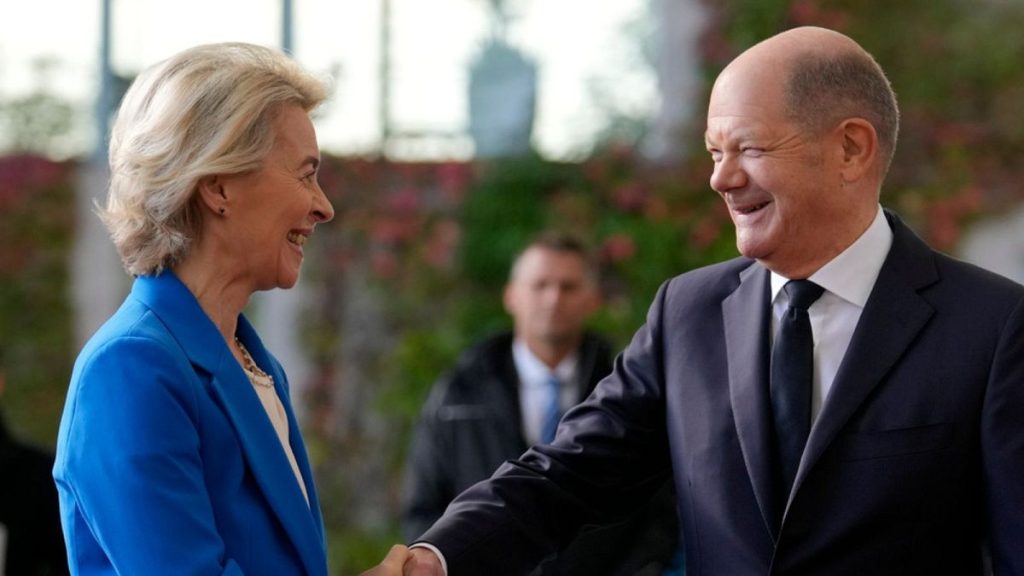The Berlin Process summit brought together the six West Balkan states – Serbia, Kosovo, Montenegro, Bosnia & Herzegovina, Albania, and North Macedonia – to sign agreements aimed at advancing their paths towards EU membership. German Chancellor Olaf Scholz and EU Commission President Ursula Von der Leyen emphasized the importance of cooperation among the states to facilitate their integration into the EU. Five out of six agreements were signed, including the lifting of export restrictions from Serbia to Kosovo. Scholz stressed the need for the states to work together, with Montenegro identified as a promising candidate for EU integration. Despite the process starting over 20 years ago, Montenegro aims to meet all requirements by 2028, with the overall process expected to be completed before 2030.
Scholz also called for improved relations between Serbia and Kosovo, highlighting the importance of reconciliation in the region. The summit comes at a time when Ukraine and Moldova’s EU memberships are being accelerated due to the crisis caused by Russia’s invasion. This situation may lead to a sense of urgency among the West Balkan states to advance their integration process and not be left behind. Croatia, the most recent addition to the EU in 2013, serves as an example of the lengthy and complex journey towards EU membership, providing insights for the Balkan states as they navigate their paths towards accession.
The Berlin Process summit showcases the ongoing commitment of the EU and its member states to support the West Balkan states in their Euro-Atlantic integration efforts. The agreements signed during the summit aim to address various political, economic, and social challenges faced by the Balkan countries, helping them align with EU standards and requirements. By encouraging cooperation and mutual assistance among the states, the EU aims to foster stability, democracy, and prosperity in the region, ultimately paving the way for their EU membership. The process serves as a platform for dialogue, collaboration, and progress towards shared goals of European integration.
The progress made during the Berlin Process summit marks a significant step towards the West Balkan states’ EU accession, highlighting their commitment to reform, good governance, and European values. The agreements signed, including the lifting of export restrictions and the focus on improving relations between Serbia and Kosovo, demonstrate a willingness to overcome historical tensions and work towards a shared future within the EU. By aligning with EU standards and regulations, the West Balkan states are positioning themselves to integrate seamlessly into the European Union, benefiting from the economic, political, and social opportunities that come with membership.
As the integration process moves forward, it is crucial for the West Balkan states to continue their efforts towards reform, rule of law, and regional cooperation. The support and encouragement from the EU and its member states will be essential in guiding the Balkan countries through the complex accession process, ensuring that they meet the necessary criteria and obligations for EU membership. By building strong partnerships, fostering dialogue, and implementing reforms, the West Balkan states can overcome challenges and progress towards a future as full-fledged members of the European Union, contributing to the overall stability and prosperity of the region. Through sustained efforts and collaboration, the West Balkan states can realize their aspirations of EU integration, strengthening ties with the EU and fostering a shared future of peace, democracy, and prosperity in the region.













